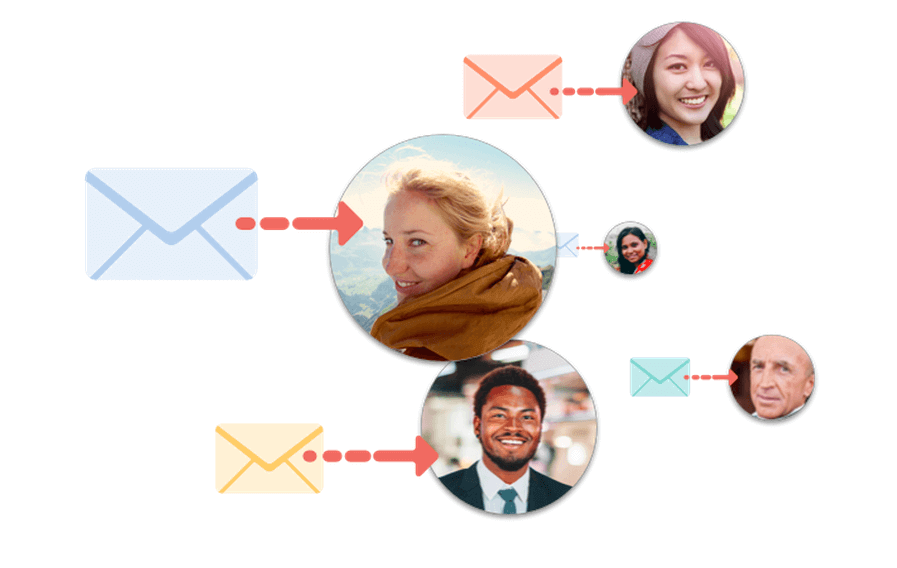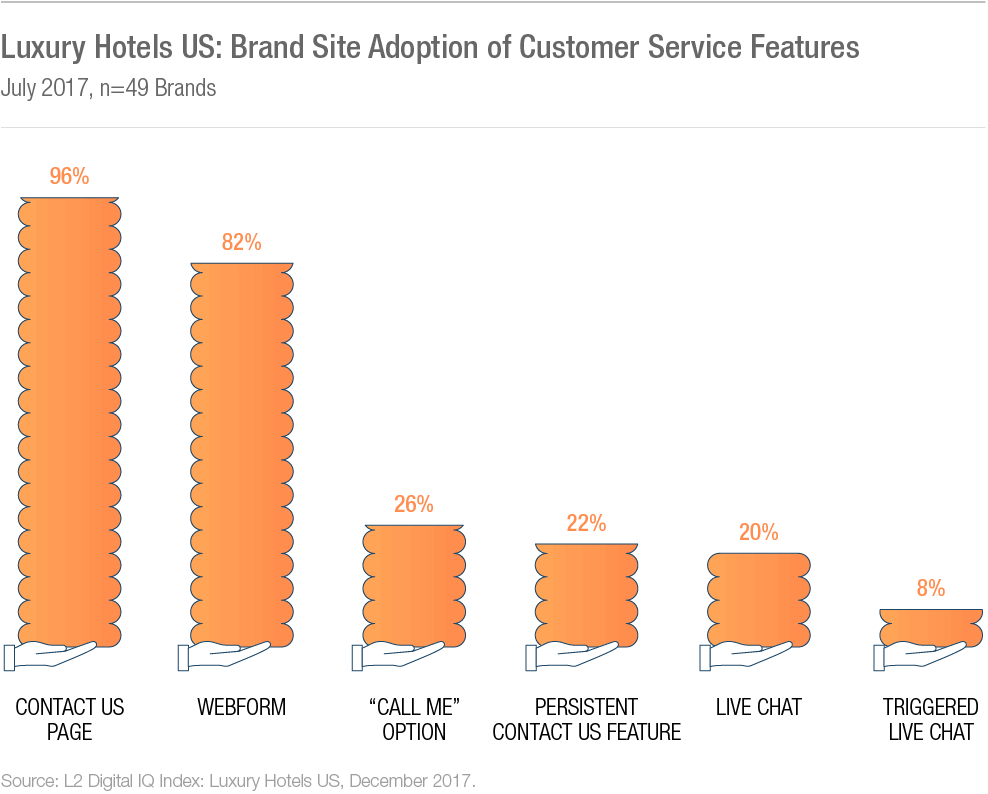
Every hotel website has a “contact us” page, a page where people can find the most basic details.
NB: This is an article from Screenpilot
Such a passive posture, however, is a missed opportunity for hotel teams to facilitate interaction and funnel a user’s focus while they’re actively engaged.
Customer service is supposed to be at the core of hospitality, yet that “extra mile” ethos doesn’t always translate into the digital sphere. The integration of enhanced contact tools on hotel websites has been moderate, and not just among smaller properties with modest budgets.
L2’s recent Digital IQ: US Luxury Hotels report revealed that while nearly every global hospitality brand analyzed has a dedicated “contact page” on their website, only about one in four allow users to request a call from a customer service agent, and even fewer offer a “live chat” feature.

Adding more sophisticated contact features offers a competitive edge and leads to direct bookings.
Here are five website enhancements for contact that converts.
UPGRADED FEATURES
Webform
Utilitarian to the core, web forms have been around as long as there’s been a web, and many hotels already have simple submission area on their “contact us” page.
Hotels that don’t currently offer a web form should consider this simple, low-cost addition that can be implemented in just a matter of days.
Web forms let users fire off their thoughts with fewer clicks, and without the need to open additional applications. Savvy marketing teams will additionally take the opportunity to invite users to opt-in the property’s email list.
Persistent “Contact Us” Feature
When a user experiences an “I want to go” moment, the last thing you want to do is make them wonder how to reach you.
Often added with simple plugins, a persistent “contact us” feature always keeps the opportunity for interaction on screen, regardless of where the user navigates across the hotel website.
ADVANCED FEATURES
“Call Me” Prompt
For all the new tech in the hospitality industry, humans are still the heart of quality customer service.
Allowing users to request a call from the hotel team not only offers an opportunity to quickly and efficiently answer questions, it also offers an opportunity for conversion.
Further, providing an easy method of moving an inquiry from online to the phone line is efficient, and a welcome customer service act that shows an appreciation of how important a user’s time is.
Chatbots
The integration of chatbots is on the rise across many industries, including hospitality. Users engage in an automated, conversational experience via text on a property’s website for a thoroughly modern user experience (UX).
Many of today’s chatbot services are smart, adaptive and relatively easy to assimilate into existing sites. Most chatbots are equipped with natural language processing (NLP) and have become pretty good at decoding nuance and intent.
Not only does the integration of chatbots show that you’re modern and dedicated to next-level customer service, the tool can be a source of business intelligence. If your chatbot is being bombarded with inquiries about checkout times, for example, it’s likely that information needs to be featured more prominently on the website, or that it might be missing entirely.
Particularly for properties with a smaller staff, chatbot integration can really lend a helping hand.
ELITE FEATURES
Live Chat
Chatbots are a cool tool, still nothing beats that human touch.
Across the internet, the most friction-free purchase experiences offer a “live chat” option. It’s a UX feature people love, with one recent study noting 44% of online consumers say that having questions answered by a live person during an online purchase is one of the most important features a website can offer.
A separate report recently noted “chat” is becoming the customer service interaction of choice, with 92% of customers saying they feel satisfied when they use a website’s live chat feature, exceeding the satisfaction levels of using voice, email, even social media messaging like Facebook and Twitter.
The integration of live chat can offer unique challenges when it comes to smaller hospitality groups. Travel is a global game, and servicing users from different time zones writing in different languages needs to be addressed, but the growing benefits – and expectations – of live chat is still worth investigating to see if it’s a fit for your particularly property.
“Triggered” Live Chat
Even more proactive than simply offering live chat is actually initiating a live chat session automatically.
“Triggered” live chat sessions are prompted after a user has been inactive on the website for a predetermined amount of time.
It’s the digital equivalent to an on-property employee spotting a guest pouring over a map and taking the initiative to ask “May I help you find something?” and a customer service feature that’s sure to leave guests impressed.




